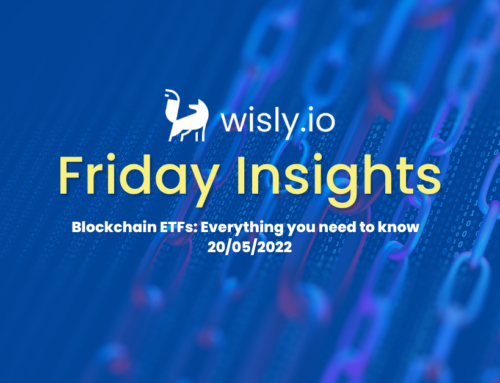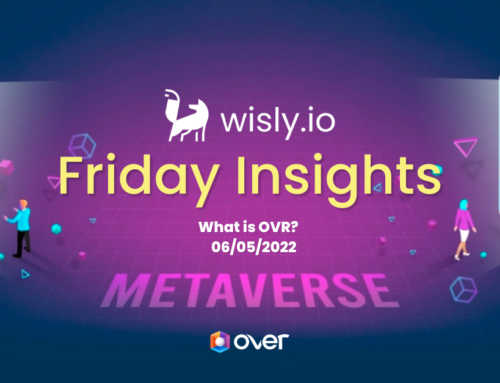2021 proved to be a landmark year in the world of crypto as the markets welcomed an unprecedented number of investors and traders who all wanted a piece of the pie. While many would think that Bitcoin was the main attraction, that couldn’t be further from the truth as altcoins and specific sectors in the crypto market outperformed BTC spectacularly – with the smart contract sector proving to be extremely impressive.
What are smart contracts?

A smart contract is a program that is written on a blockchain – an online record of programs and transactions – and self-executes when specific conditions are satisfied. Developers use code to define and enforce the rules of the smart contract. Once a smart contract is deployed, it runs independently without the need for an intermediary to make sure that a specific smart contract is fulfilled.
With smart contracts, software developers can build blockchain-based applications on top of them – similar to how apps are developed for smartphones. Such blockchain-based applications are extremely useful tools as they run automatically once specific conditions are satisfied – leading to greater efficiency and reduced human error.
Smart contracts enable automated blockchain systems – something that has taken off in 2021. It is for this reason that a plethora of investors have flocked towards smart contract-focused cryptocurrencies in the past year – outperforming Bitcoin by over four times in 2021 with the trend set to continue in 2022.
Smart contract use cases

The beauty about smart contracts is that they can add value and effectively contribute to almost any industry – including finance, law, and gaming.
You wouldn’t be wrong in thinking that finance would be the perfect fit for smart contract technology as many developers have leveraged them to build complex decentralised finance (DeFi) systems.
Smart contracts are particularly effective in providing financial services as:
- Users can become liquidity providers by lending their own crypto funds into a smart contract with a decentralised exchange (DEX).
- The DEX uses those funds for crypto trading and lending.
- Users can swap crypto or put up collateral and get a loan on the DEX. Smart contracts would execute these transactions and collect all transaction fees.
- All liquidity providers would then earn a portion of the transaction fees – akin to a reward for lending their crypto funds.
By using smart contracts on a decentralised exchange, there are no third parties like payment processors or banks involved in the transaction. This means that users from across the globe can trade crypto and borrow, lend and earn interest on funds – without any middleman involved.
In terms of the legal field, smart contracts as well suited as they can easily be classified as legally binding contracts that execute or terminate upon specific conditions. Here, smart contracts would drastically reduce the time and costs that are typically involved in executing business deals.
Non-fungible tokens (NFTs) – unique digital assets stored on a blockchain – have taken off in the past year. With smart contract technology, the unique information of each NFT can be stored and recorded, together with information of ownership – providing a timeline from the creator throughout the various owners of that NFT.
Blockchain games also include characters that appear in the form of NFTs that players can buy. Whenever a player buys a new character, they are essentially buying an NFT with statistics and other information that is stored on the blockchain in a smart contract – once again providing specific details of their purchase.
Benefits of smart contracts

By now, you may have gauged how beneficial smart contracts can be to us in everyday life. Let’s touch on some of the major benefits of smart contracts.
Cost-efficient – Smart contracts are a cost-efficient way to do business as they run on their own and self-execute without relying on intermediaries.
Quick transactions – Smart contracts can execute immediately once all conditions have been satisfied with practically no wait time.
Transparency – Smart contracts have clear terms and conditions that are available for all parties to evaluate and agree on. In addition, smart contracts cannot be reversed, so once it is executed, the results cannot be disputed.
Trustworthy – Smart contracts eliminate possible biases that could affect the agreement as the terms cannot be manipulated to favour any particular party.
Smart contracts to watch 2022
There is fierce competition in the crypto market when it comes to smart contract cryptos, as they are all vying to attract developer interest and key projects. With that being said, let’s touch on some exciting smart contract cryptos to keep an eye on for 2022.
Ethereum

Ethereum is the largest smart contract crypto around, and after its recent upgrade to Eth2 will provide an even faster network with cheaper gas fees – what’s not to like about that? Ethereum holds the lion’s share of smart contract applications and is the second only to Bitcoin in terms of its market cap. Ethereum’s shift to Eth2 is staged and will only be finalised in 2023, so that provides an opportunity for other smart contract cryptos to close the gap – somewhat.
Solana
Solana enjoyed fantastic gains in 2021 and moved from 120th place at the beginning of last year to 5th place before the new year dawned upon us – truly incredible and underscoring how well this smart contract crypto has performed. With a price increase of over 11,000%, cheap transaction fees and transaction speeds of more than 50,000 per second, there’s no wonder why Solana is one to keep a watchful eye on this year.
Cardano

Cardano has quietly gone about its business using a slow-and-steady approach to its development. Developers here prefer to test and peer review new initiatives thoroughly before rolling out new functionality, although that hasn’t deterred investors from seeing value in its projects.
While Cardano has only launched smart contracts under six months ago, there are over 100 projects in the development stage within Cardano’s ecosystem. Incredibly, around 30 of these projects are anticipated to launch in the near future – exciting times indeed and perhaps the perfect opportunity for Cardano to come to the party and close the gap on both Ethereum and Solana.
Final thoughts
These are certainly exciting times to look forward to as smart contract technology begins to evolve and gain traction in 2022. As more industries across the globe begin to leverage smart contracts in their operational model, there will be far greater adoption of this innovative technology – something that investors, developers, and the world at large is anticipating with bated breath.




